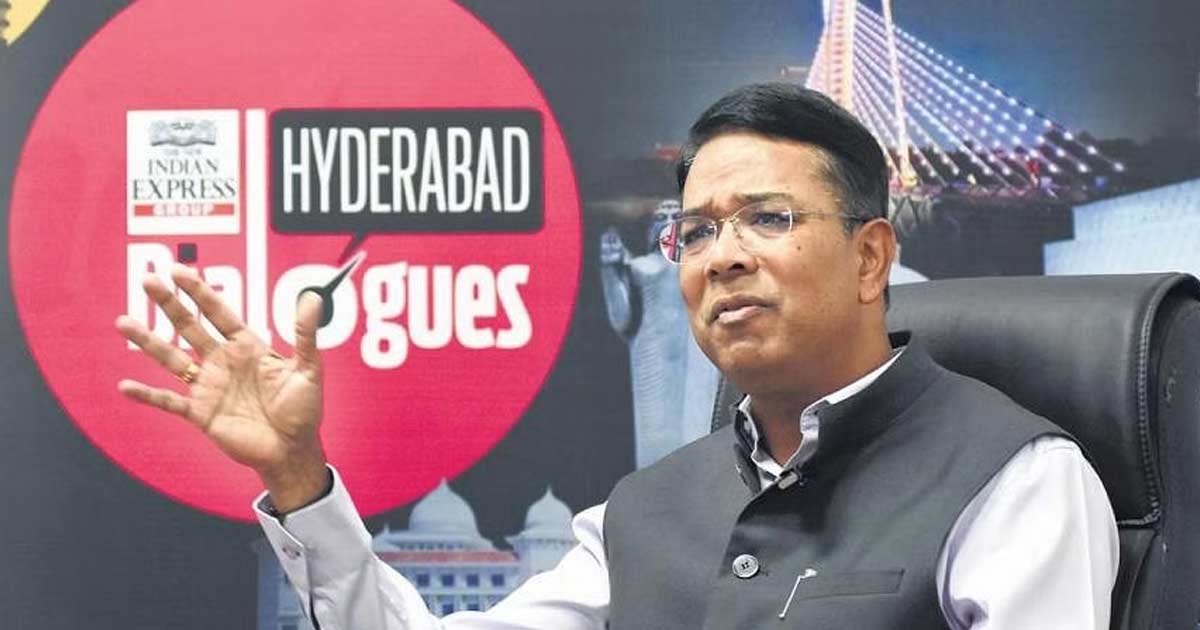Prashant Kishore, a man in Narendra Modi’s successful campaign in the 2014 Indian general election, contributed to Mamata Banerjee’s victory in the 2016 West Bengal Legislative Assembly election. Banerjee’s Trinamool Congress (TMC) was a man with a data-driven and innovative approach who had worked with various political parties, both regional and national, to help them secure electoral victories. Kishor’s strategic insights have been instrumental in optimising voter outreach, messaging, and ground-level mobilisation.
He has collaborated with major political parties including the BJP and the Trinamool Congress, contributing to their electoral successes. His methodology involves a deep understanding of local dynamics, demographics, and public sentiment, allowing him to devise effective campaign strategies. Prashant Kishor’s impact on Indian politics is substantial, and he is regarded as a key figure in shaping the electoral landscape of the country. His work demonstrates the pivotal role of strategic planning and data analysis in contemporary Indian politics.
Prashant Kishore’s Journey From Mr. Kishore to Political Strategist
After being underground for 13 months, working on his ongoing project Jan-Suraaj, Kishore finally came forward to discuss his views on India 2024 on one of the news channels, Avatar Live, where he expressed his views by giving a background on what inspired him to become a political strategist and why he suddenly left the role of strategist and started his yatra “Jan Suraaj.” His father was a government doctor. At some point, he realised that the healthcare conditions in India were worse than what he had observed in Africa. It inspired him to go back to India in 2011 and see what could be done to make these conditions better. Prashant Kishore is a highly influential Indian political strategist renowned for his role in shaping election campaigns and political strategies in India, but when he was complimented by the interviewer regarding this, he said, “Sometimes I doubt whether to take it as a compliment or slap because some people view my role as that of a ‘gun for hire’ or a political machinery without a fixed ideology.” He aims to help political parties and individuals win elections.
Prashant Kishore’s Bihar Mission: Fostering Bottom-Up Politics and Empowering Marginalised Communities
Kishore said in an interview that he is on a mission in Bihar to demonstrate an alternative approach to politics. Kishore’s goal is to foster the creation and success of political parties that emerge from the bottom-up, reflecting the needs and aspirations of the people. His experiences have led him to understand that Bihar, a state he was born and raised in, is even more impoverished and marginalised than he initially believed. He recognizes the importance of exploring and addressing the peripheries and nuances of the region, despite spending a lifetime in a particular district. Kishore’s work reflects a commitment to empowering communities, creating a political landscape that truly represents the people’s interests and extending this model as an inspiration for political transformation beyond Bihar.
Gandhi-inspired leadership to counter BJP
“Gandhi remains the most admired political figure even today, as evidenced by the powerful images from the G20 summit, ” said Kishore.
When asked how the opposition party can defeat the BJP, Kishore commented that they should have a leader who embodies a blend of Ambedkarite, Communist, and true socialist principles, with a strong emphasis on Gandhian philosophy, particularly leaning towards being a follower of Mahatma Gandhi.
Kishore explained his point by commenting on the works of Gandhi. He said “Gandhi was opposed to cow slaughter (Gau hatya) and indirectly alluded to Hindutva. His emphasis on values such as ‘Vaishno Jan’ in his daily life shares some commonalities with the ideology of the RSS (Rashtriya Swayamsevak Sangh), as it could be claimed. Although he was part of the Congress, Gandhi’s ability to embrace and unite diversity in the country is worth noting. In a diverse nation like India, it’s challenging to find a one-size-fits-all solution for every issue.”
Prashant Kishor’s Blueprint for Defeating the BJP: Challenging Hindutva, Hyper-Nationalism, and Organisational Strength
“Why the BJP is winning elections can be explained by four main factors: their ideological base, which is Hindutva; Modi’s addition of hyper and neo-nationalism, portraying India as a global leader; the direct beneficiaries of their policies, particularly the economically disadvantaged; and their strong organisational muscle,” said Kishore. To have a chance of defeating them, one must effectively challenge them on all four fronts. It’s worth noting that in state elections, the hyper-nationalism card may not work as effectively, said Kishore. He critiques the political landscape in India, highlighting the challenges faced by opposition parties and alliances. These parties have not effectively addressed the issue of nationalism, as per his observation. Furthermore, he points out that many opposition groups, including the Indian National Congress, have not openly shared their problems or effectively harnessed their organisational strengths.

Kishore is critical of the time-consuming and somewhat disjointed efforts of these opposition parties to come together to form alliances. He suggests that their progress has been slow, even though they have generated significant interest and conversation in the media. He advocates for a more efficient and focused approach to building alliances, stating that essential issues like a shared narrative and synergy among core leaders should be resolved more quickly.
His comment about Rahul Gandhi appears to be a pointed remark about the challenges faced by the Indian National Congress in securing electoral victories despite having a prominent leader like Rahul Gandhi. Prashant Kishore’s critique reflects his belief in the need for effective leadership and strategies to counter the ruling party’s dominance in Indian politics.
Strategy for Countering the BJP’s Hindutva Appeal: Uniting Diverse Ideologies and Engaging the 50 Percent
Prashant Kishore’s statement suggests that to defeat the BJP (Bharatiya Janata Party) in Indian politics, the opposition parties should have a political leader who embodies a blend of Ambedkarite, Communist, and true socialist principles, with a strong emphasis on Gandhian philosophy. He emphasises the importance of a political leader who can unite these diverse ideologies and values, possibly to appeal to a broad spectrum of voters and create a strong opposition force in Indian politics.
Prashant Kishore is commenting on economic policies and discussing the voting patterns of Hindus in relation to the BJP (Bharatiya Janata Party) and the concept of Hindutva. He is emphasising the need to examine the proportion of Hindus influenced by the BJP’s portrayal of Hindutva ideology and the distinction between ‘soft’ and ‘hard’ Hindutva. Kishore also mentions that, in the last election, the BJP received 38 per cent of the vote and suggests that it is essential to understand the ideology behind the 50 percent of Hindus who did not vote for the BJP. He identifies four groups within this 50 per cent. Gandhian followers, those who support communism, followers of Ambedkar (likely referring to B.R. Ambedkar, a prominent figure in Indian history) and original socialist. He appears to be advocating for the need to build a formidable challenge to appeal to these groups of voters to counter the BJP’s influence among Hindus.
Prashant Kishore’s Political Trajectory: A Strategic Vision for Grassroots Development and Pan-Indian Influence
- Prashant Kishore has stated that he is not planning to make any of his upcoming political party like the Aam Aadmi Party (AAP) and has expressed his disbelief in “Kranti and Andolan,” which suggests he may not be inclined towards revolutionary or protest-based politics.
- He has outlined his ten-year plan, which involves meeting with people, understanding their problems, and formulating long-term development plans for villages or panchayats. His focus is on improving education, creating jobs, and making agriculture more financially rewarding, especially in the context of Bihar’s migration issues.
- It appears that Prashant Kishore has ambitions to make his upcoming party a strong, pan-Indian political force that targets all states in the long term. However, in the short run, he may also be eyeing the Chief Minister position in Bihar.
- His statements and actions have often targeted the Congress party, possibly because he sees them as a potential rival or is critical of their actions. It could also be related to his concerns about the ruling party.
It is essential to understand that the political landscape in India is dynamic, and the intentions and strategies of politicians can change over time. Prashant Kishore’s plans and actions may evolve as he continues to navigate the complex world of Indian politics.








[…] In a recent media interaction in Chennai, notable political strategist Prashant Kishor commented that, “BJP will be Bigger and Stronger Political force in Tamilnadu than what many believe. They’ll c…“ […]